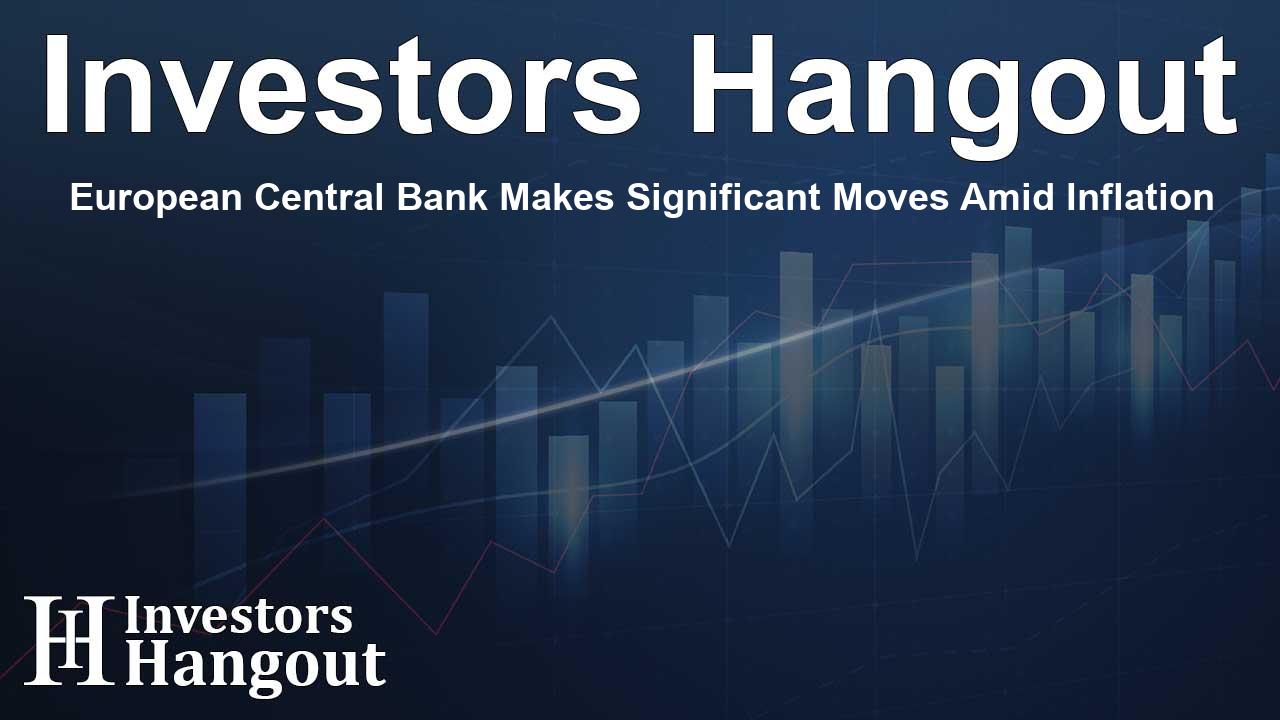European Central Bank Makes Significant Moves Amid Inflation

European Central Bank Implements Second Rate Reduction
The European Central Bank (ECB) has once again made headlines by cutting interest rates amid signs of slowing inflation and an economy facing challenges. This decision, which follows a similar cut earlier this year, reflects the central bank's strategy to support the economy as it navigates through uncertain times.
Details of the Rate Cut
As anticipated by analysts, the ECB reduced its deposit rate by 25 basis points, bringing it down to 3.50%. This move comes as inflation approaches the ECB's target of 2%, signifying a period of potential recovery for the economy. Investors have reacted to the news, with the euro initially gaining value, reaching a high point before stabilizing around $1.1016. Meanwhile, government bond yields remained steady, and European stock markets showed resilience.
Insights from Experts
Economists quickly shared their perspectives on the ECB's move. Sylvain Broyer, Chief EMEA Economist at S&P Global Ratings, noted that while the rate cut was expected, the lack of additional guidance from the Governing Council leaves room for interpretation. He pointed out that wage growth is significantly outpacing productivity, which may hinder rapid advancements in rate cuts.
Furthermore, Broyer suggested that the anticipated reduction in the repo rate may not substantially influence market dynamics, primarily because banks seem satisfied with current liquidity levels provided by the ECB.
Future Economic Projections
Marchel Alexandrovich, an economist from Saltmarsh Economics, echoed Broyer's sentiments, indicating that the ECB is maintaining a careful stance. He highlighted the latest forecasts revealing slightly weakened GDP growth paired with a modest rise in underlying inflation. This juxtaposition suggests that while the economy may not be in dire straits, there’s a necessity for ongoing scrutiny and possibly more adjustments in monetary policy.
The Path Ahead for ECB
As the ECB evaluates its strategies, experts anticipate further easing measures may emerge in the upcoming months. The central bank currently holds a pivotal role in stabilizing the economy, and its actions will be closely monitored by market participants.
Conclusion
In conclusion, the ECB's recent rate cut represents a significant step in its ongoing battle against fluctuating economic conditions and inflation. As the landscape evolves, the expectations of steady policy adjustments align with the broader context of a demanding economic environment.
Frequently Asked Questions
What prompted the ECB to cut interest rates again?
The ECB cut rates due to slowing inflation and economic growth challenges.
What is the new deposit rate set by the ECB?
The new deposit rate is 3.50%, reflecting a 25 basis point reduction.
How did the euro react to the ECB's announcement?
The euro briefly increased in value, touching a high before stabilizing around $1.1016.
What are the economic forecasts indicating for the future?
Recent forecasts show slightly weaker GDP growth alongside a rise in underlying inflation.
What actions might the ECB take in the coming months?
Experts suggest the ECB may consider further easing measures depending on economic performance.
About Investors Hangout
Investors Hangout is a leading online stock forum for financial discussion and learning, offering a wide range of free tools and resources. It draws in traders of all levels, who exchange market knowledge, investigate trading tactics, and keep an eye on industry developments in real time. Featuring financial articles, stock message boards, quotes, charts, company profiles, and live news updates. Through cooperative learning and a wealth of informational resources, it helps users from novices creating their first portfolios to experts honing their techniques. Join Investors Hangout today: https://investorshangout.com/
Disclaimer: The content of this article is solely for general informational purposes only; it does not represent legal, financial, or investment advice. Investors Hangout does not offer financial advice; the author is not a licensed financial advisor. Consult a qualified advisor before making any financial or investment decisions based on this article. The author's interpretation of publicly available data shapes the opinions presented here; as a result, they should not be taken as advice to purchase, sell, or hold any securities mentioned or any other investments. The author does not guarantee the accuracy, completeness, or timeliness of any material, providing it "as is." Information and market conditions may change; past performance is not indicative of future outcomes. If any of the material offered here is inaccurate, please contact us for corrections.